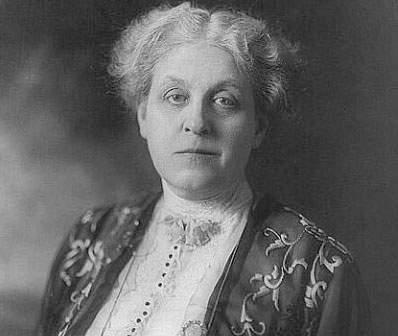AMES — Iowa State University’s Catt Hall — honoring the women’s suffrage leader Carrie Chapman Catt, accused by some of holding racist views — will permanently keep its name after an ISU name-removal committee cast a final 11-4 vote.
That Nov. 3 vote — which the university announced Thursday — followed years of investigation, review of 250 historical documents, a dozen interviews and the production of a 46-page report that generated 311 public comments.
“Why are we ignoring all of her accomplishments for women and our college because of a few words she said over 100 years ago,” one ISU student wrote to the committee, according to a collection of the public comments Iowa State released.
“Over 100 years ago, times were different, and society will forever and always be changing. Grow up and spend our money on something that’s actually important and helps our campus and students. Keep the name CATT HALL!!!”
An ISU faculty member, on the other side, told the committee, “There is no place for supporting racism in any possible manner. Racism is never acceptable, irrespective of who the person is racist with. Please help Iowa State to stop honoring racist people — past and present. Iowa is a pretty racist state already. Iowa State doesn’t need to support racism in any manner.”
Deliberations
The 11-4 vote shows some movement among the 15 members of the “Consideration of Removing Names from University Property” committee — given its 9-6 vote in August, before the public-comment period.
To remove a name from the ISU campus, two-thirds of the committee must agree and then get Board of Regents’ approval, according to a new ISU policy. Because a majority agreed to retain the Catt name, no further action is necessary.
“During the past two years, the committee has methodically dealt with an extremely complicated task,” ISU President Wendy Wintersteen wrote in a campus message Thursday, in which she reported she’ll accept the committee’s decision.
“The committee members had to come to grips with history that is told and understood from differing perspectives across a century,” she said. “Theirs was an extraordinary commitment of time and effort. With thoughtful consideration of factual and historical materials, the committee deeply examined an important and complex historical figure.”
Catt’s background
Catt — born as Carrie Lane on Jan. 9, 1859, in Ripon, Wis — enrolled at Iowa State in 1877 and was the only woman in the graduating class of 1880, earning a bachelor’s degree in general science.
Iowa State granted her an honorary Doctor of Laws degree in 1921 and she became the first woman to give an ISU commencement address that year, returning to give another address in 1930. She was an ISU donor.
Among her accomplishments, Catt succeeded Susan B. Anthony as president of the National American Woman Suffrage Association, serving from 1900 to 1904 and from 1915 to 1920. She led the effort culminating in the ratification of the 19th Amendment to the Constitution in 1920, giving American women the right to vote.
But, in doing so, Catt used racist arguments — according to historical documents and a standing change.org petition to “Rename Catt Hall” signed by 4,767 people.
“In an attempt to sway Southern states in favor of the 19th Amendment, Catt rallied white politicians by claiming that ‘white supremacy will be strengthened, not weakened, by women’s suffrage,’ ” according to the petition. “Catt’s racism has often been excused as simply a political strategy to gain Southern support rather than an ideology she actually supported.
“But this argument is offensive and minimizes the horrific perpetuation of white supremacy that Carrie Chapman Catt actively encouraged and worked to uphold.”
21 requests to review Catt Hall
The committee began looking into requests to remove the “Catt” name from one of its administrative buildings after its inception in March 2021 — following outcry over an ISU plaque honoring W.T. Hornaday.
Hornaday went to Iowa State in the 1870s before serving in the early 1900s as inaugural director of the Bronx Zoo, where he curated an exhibit caging a Congolese man in the “Monkey House” with an orangutan.
More than a century later, criticism of Iowa State’s plaque honoring him compelled campus officials in November 2020 to develop a new policy, principles and procedures for removing names from campus spaces — including creation of the new review committee.
Although Iowa State temporarily removed the Hornaday plaque, pending a full name-removal committee examination, Catt Hall was chosen for the new committee’s first review — given 21 requests from students, staff, alumni to reconsider it.
“I don’t understand — if the name of a building is offensive or makes people uncomfortable, then why keep the name?” one student wrote to the committee during the recent public-comment period.
Another faculty member, holding the opposite view, wrote: “I thoroughly urge the committee to vote against removing names from any buildings for fleeting political reasons.
“These names are there for a reason,” he wrote. “The people who lend their names to buildings and monuments are part of the nation’s history. The history cannot be rewritten or deleted. Those people are products of their time and should be accepted as such.”
Vanessa Miller covers higher education for The Gazette.
Comments: (319) 339-3158; vanessa.miller@thegazette.com














You must be logged in to post a comment Login